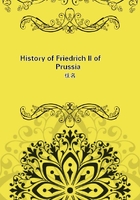
第16章
Paris." And Jerome's answer, "Ibid. Epist. 76*."] "and Jerome answers: 'I followed the Commentaries of Origen, of'"--five or six different persons, who turned out mostly to be heretics before Jerome had quite done with them in coming years!--"'And to confess the honest truth to you,' continues Jerome, 'I read all that;and after having crammed my head with a great many things, I sent for my amanuensis, and dictated to him now my own thoughts, now those of others, without much recollecting the order, nor sometimes the words, nor even the sense.' In another place (in the Book itself farther on [ "Commentary on the Galatians, chap. iii."]), he says: 'I do not myself write;I have an amanuensis, and I dictate to him what comes into my mouth. If I wish to reflect a little, to say the thing better or a better thing, he knits his brows, and the whole look of him tells me sufficiently that he cannot endure to wait.'"--Here is a sacred old gentleman, whom it is not safe to depend on for interpreting the Scriptures, thinks her Majesty; but does not say so, leaving Father Vota to his reflections.
Then again, coming to Councils, she quotes St. Gregory Nazianzen upon him; who is truly dreadful in regard to Ecumenic Councils of the Church,--and indeed may awaken thoughts of Deliberative Assemblies generally, in the modern constitutional mind. "He says, [ "Greg. Nazian. de Vita sua." ] No Council ever was successful; so many mean human passions getting into conflagration there; with noise, with violence and uproar, 'more like those of a tavern or still worse place,'--these are his words. He, for his own share, had resolved to avoid all such 'rendezvousing of the Geese and Cranes, flocking together to throttle and tatter one another in that sad manner.' Nor had St. Theodoret much opinion of the Council of Nice, except as a kind of miracle. 'Nothing good to be expected from Councils,'
says he, 'except when God is pleased to interpose, and destroy the machinery of the Devil.'"--With more of the like sort; all delicate, as invisible needle-points, in her Majesty's hand. [Letter undated (datable "Lutzelburg, March, 1708,") is to be found entire, with all its adjuncts, in Erman, pp. 246-255. It was subsequently translated by Toland, aud published here, as an excellent Polemical Piece,--entirely forgotten in our time ( A Letter against Popery by Sophia Charlotte, the late Queen of Prussia: Being, &c. &c. London, 1712).
But the finest Duel of all was probably that between Beausobre and Toland himself (reported by Beausobre, in something of a crowing manner, in Erman, pp. 203-241, "October, 1701"), of which Toland makes no mention anywhere.] What is Father Vota to say?--The modern reader looks through these chinks into a strange old scene, the stuff of it fallen obsolete, the spirit of it not, nor worthy to fall.
These were Sophie Charlotte's reunions; very charming in their time. At which how joyful for Irish Toland to be present, as was several times his luck. Toland, a mere broken heretic in his own country, who went thither once as Secretary to some Embassy (Embassy of Macclesfield's, 1701, announcing that the English Crown had fallen Hanover-wards), and was no doubt glad, poor headlong soul, to find himself a gentleman and Christian again, for the time being,--admires Hanover and Berlin very much;and looks upon Sophie Charlotte in particular as the pink of women. Something between an earthly Queen and a divine Egeria;"Serena" he calls her; and, in his high-flown fashion, is very laudatory. "The most beautiful Princess of her time," says he,--meaning one of the most beautiful: her features are extremely regular, and full of vivacity; copious dark hair, blue eyes, complexion excellently fair;--"not very tall, and somewhat too plump," he admits elsewhere. And then her mind,--for gifts, for graces, culture, where will you find such a mind? "Her reading is infinite, and she is conversant in all manner of subjects;""knows the abstrusest problems of Philosophy;" says admiring Toland: much knowledge everywhere exact, and handled as by an artist and queen; for "her wit is inimitable," "her justness of thought, her delicacy of expression," her felicity of utterance and management, are great. Foreign courtiers call her "the Republican Queen." She detects you a sophistry at one glance;pierces down direct upon the weak point of an opinion: never in my whole life did I, Toland, come upon a swifter or sharper intellect. And then she is so good withal, so bright and cheerful;and "has the art of uniting what to the rest of the world are antagonisms, mirth and learning,"--say even, mirth and good sense.
Is deep in music, too; plays daily on her harpsichord, and fantasies, and even composes, in an eminent manner. [ An Account of the Courts of Prussia and Hanover, sent to a Minister of State in Holland, by Mr. Toland (London, 1705), p. 322. Toland's other Book, which has reference to her, is of didactic nature ("immortality of the soul," "origin of idolatry,"&c.), but with much fine panegyric direct and oblique:
Letters to Serena ("Serena" being Queen ), a thin 8vo, London, 1704.] Toland's admiration, deducting the high-flown temper and manner of the man, is sincere and great.